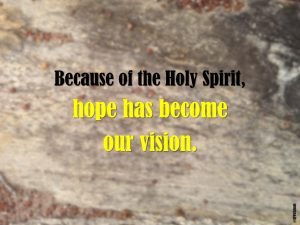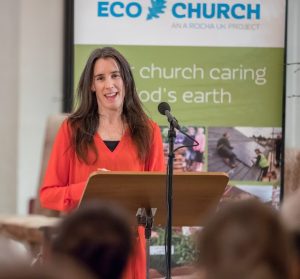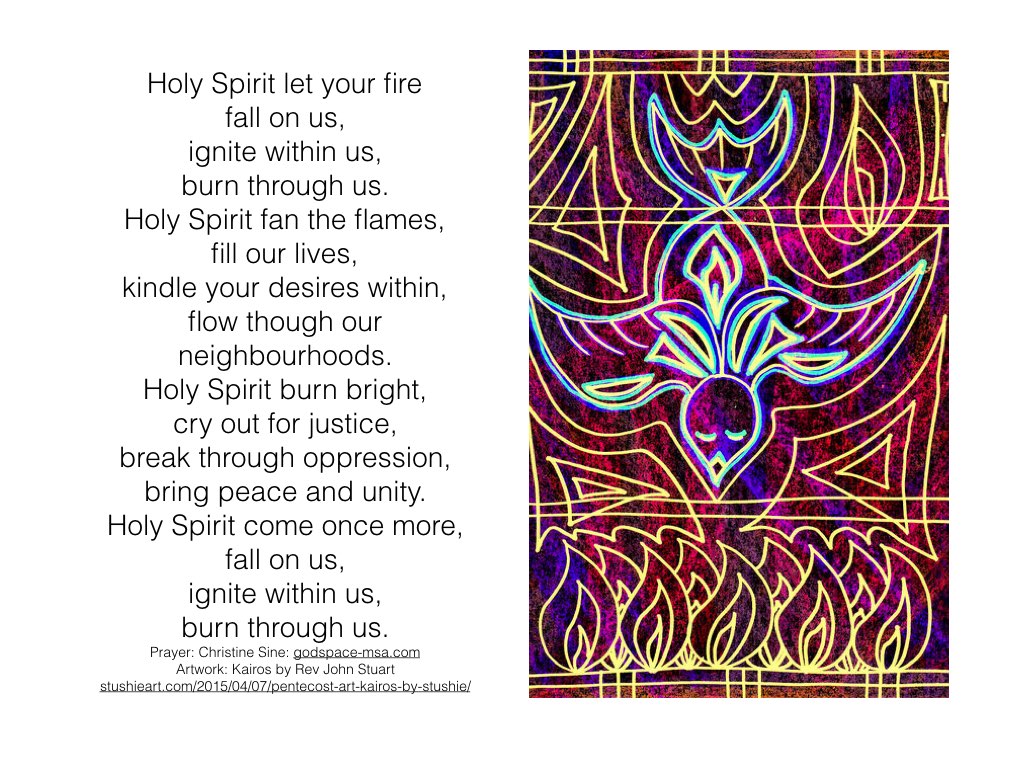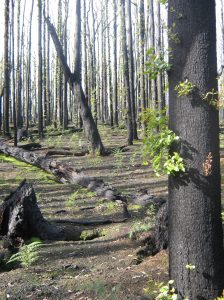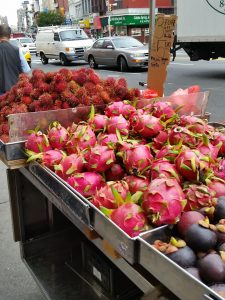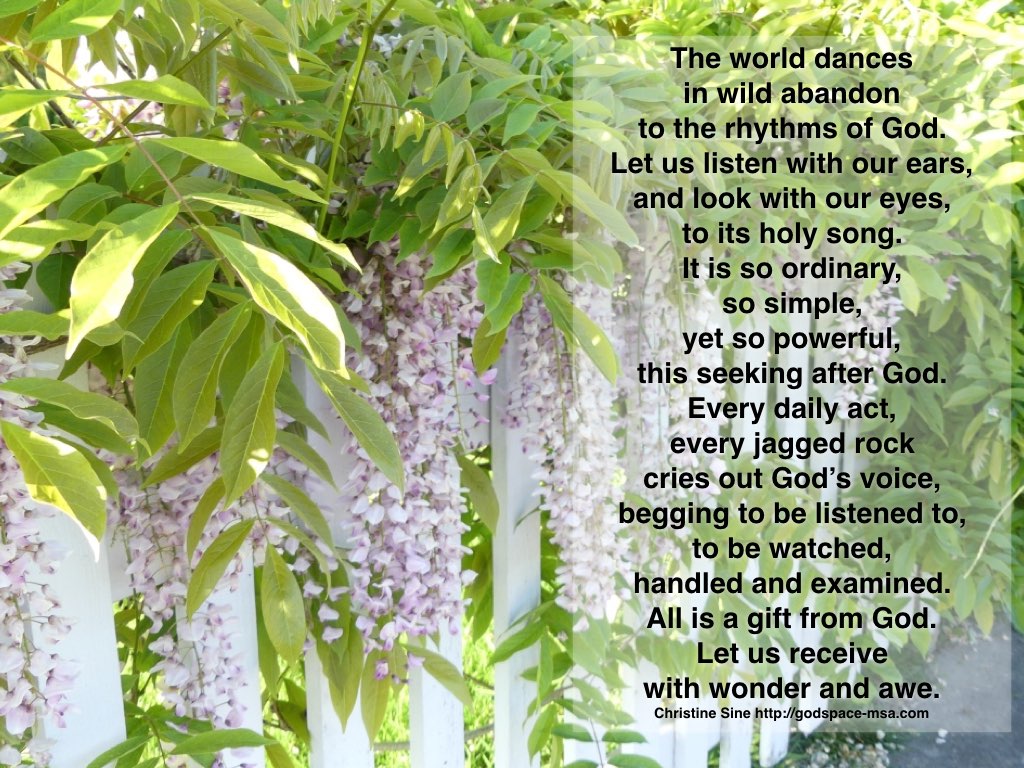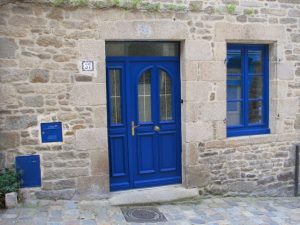Spirit, Come With Fire, Breathe, Empower, Give Life
FROM the day the Holy Spirit came, breathing the wind of life with fire into the disciples, God was reminding humanity that He, the provider God, is a giving God.
Christians are quick to own Pentecost, but the Jews had been celebrating Shavuot through the Feast of Weeks for over a thousand years when the Holy Spirit came at Pentecost ten days after Jesus’ ascension.
The coming of the Spirit was a sequel of an earlier redemptive act of God.
The Law and the Spirit
God gave Moses the Law on Sinai on the fiftieth day after Passover and the Exodus — a full seven weeks after — just as God gave the Spirit on the fiftieth day after Easter. (Remember the significance in the number seven? It’s the number of completion.) On the first hand, He gave the Law, complete, and on the second, He gave the Spirit, complete. In the giving of the Law, Moses had a formula with which to lead the people of God. In the giving of the Spirit, the Church, and each regenerated person, has the Person of Jesus as a personal anointing. Neither the Law nor the Spirit is incomplete in its purpose.
The giving of the Law was no less significant than was the giving of the Spirit. Both came from God Himself, and both were/are, therefore, perfect.
In many ways, the coming of Jesus showed the Church the importance of the Law. The Sermon on the Mount deals with such important issues which are central to Jesus’ teaching. But without the coming of the Spirit, the Law was always not enough — the Law always held us at arm’s length from our Creator.
The Spirit In Actualising Redemptive Intimacy
The Old Testament shows us how veritable the New Testament is.
In Jeremiah 31:31-34, the prophet proclaims the Day of the New Covenant; a spiritual covenant of intimacy between God and His people. In Ezekiel 36:27, God makes the connection between having the Spirit, which moves a believer to follow His decrees and keep His laws, and the Law. And yet, if we’re led by the Spirit we don’t have to keep the Law (Galatians 5:18) — because the Spirit empowers love through grace that will superintend the law. Still, the Spirit doesn’t replace the Law; it builds upon, and consecrates, the Law — it upholds and meets the Law’s intent.
If not for the Law, the Spirit has no foundation, yet if not for the Spirit, the Law has no veracity for personal transformation.
When the Holy Spirit blew in and through the disciples in that house that Pentecost day — which may have been the ‘house’ of the Temple court where 120 people witnessed it — there was a gift given. It was a gift not unlike the Law, which gave the Israelites vital information on how to please God and live as God’s covenant people. But the coming of the Spirit added something vital — it gave each disciple, and every assenting believer, the capacity to want to please God and to want to live as God’s covenant people, now under grace, through quickening obedience.
***
In the coming of the Holy Spirit, in wind and fire, God breathes in and through us to the extension of our empowerment, for others, for the Kingdom. And this, because He has put His law into our hearts. No longer do we just know about God. With the Holy Spirit we know God.
The coming of the Spirit is about redemptive intimacy. In the Spirit we have the capacity for fire, to breathe change-making possibility into life, to receive His life so as to give life. Hope has become our vision. And hope makes us have faith for victory even in situations of seeming defeat. Only the Holy Spirit could do that.
Our prayer ought to be: Spirit, come with fire, breathe, empower, give life. And the operative Spirit can do no other thing.
For some years, we have holidayed as a family on Bardsey Island. Just 1.5 miles long, by half a mile wide, sitting two miles off the North West coast of Wales, it is a wonderful place. It has also been formational in my thinking around what it means to follow Jesus in today’s consumer culture, challenging me to reflect on how we live within the limits of this island we call earth; how I spend my time, and how I connect with the wider natural world.
As I write this, however, I am not on Bardsey Island, but sitting at the kitchen table of our terraced house on a Social Housing Estate. We have had dinner and our children are out at a youth group. I’ll need to go out soon in the car and pick them and their friends up.
A week or two on Bardsey Island may teach me some important things, but the challenge is how I live out what I learn in my everyday life. The reality, of course, is that most of us live in fairly ordinary places and we are trying to live our lives as best we can in those places: trying to do our best at work; keep our mortgages/rents and bills paid whilst putting aside something for the future; raise children (if we have them) as well as we can; keep our relationships steady, and not get too tired and worn out in the process. While we do that we face a cultural expectation that we should be upgrading and buying new things, moving gradually upwards in our lifestyle, and making sure that we – particularly women – look as beautiful as possible in the process.
At the same time, we want Christ to be at the centre of all we do and we know that should make a difference to how we live and to what we view as our life priorities. Added to all of this, we know only too well that we live in a world with incredibly complex problems: inequality, injustice, climate change, rising sea levels, energy crises, hunger, lack of access to clean water, species extinction, crashing fish stocks and so on and so on. Most of us have a deep sense that these, and other, issues cannot be ignored, and a deep desire to do something about them. The least we can do, we feel, is give some of our money to charities (and we are often pretty good at that), but we know it is not enough.
We have a feeling that there is a connection between how we live our lives, the culture we live in, our Christian faith, and the broader issues of this world, but sometimes it is all too much and, honestly, it is all we can do to make it through to the end of the day and collapse in front of the television with a glass of wine.
Just Living: Faith and Community in an Age of Consumerism looks at how those connections can be made and how living a connected life in this way need not be onerous and burdensome, nor lead to a life of deprivation. What I have discovered is that joining the dots can be a lot of fun and can take you on an adventure you never imagined you would have. Yes it may lead to a life where you say ‘no’ to some things, but it also leads to a life where you say ‘yes’ to a whole lot more!
Here are my seven top tips to help you make a start:
1. Ask God to keep your heart soft to global issues of need, and to show you how you can help.
2. Change your diet so it is predominantly vegetable and grain-based, with a little meat and fish if you like.
3. When you buy a treat for yourself, buy something for someone else too and bless them as well as yourself.
4. If there is ever a fairtrade or ethical option when buying a product, choose that one.
5. Get out your front door and get involved in a local community initiative.
6. Do one thing in your work (or predominant life) situation to make it a more caring environment.
7. Take ten minutes each day to sit in silence and root yourself in God.
This article was first published in Inspire, the UK’s good news magazine – see inspiremagazine.org.uk” Used with permission.
Dr Ruth Valerio is Churches and Theology Director for A Rocha UK, a Christian charity that works for the protection and restoration of the natural world. She lives in Chichester, England, with her family and together, they try to live out a life that integrates their faith with issues of justice and wider creation care. Ruth is a prominent theologian and speaker and is the author of a number of books and Bible studies. To find out more about her see www.ruthvalerio.net.
Pentecost is almost here and I have spent quite a bit of time this week thinking about its implications for our lives. It is fun to dress in red as we do at our church and have whirligigs for the kids to play with but forget that this was the event that launched the church out into the world. This was the event that radically changed the disciples from “behind closed doors followers” to “we can change the world for good” believers.
Pentecost launched a new movement towards justice and healing and peace and the question I am pondering as Pentecost approaches is: How do I live that out in my life?
More resources for Pentecost – ideas for creative worship here
By Andy Wade –
For everything there is a season, a time for every activity under heaven. Ecclesiastes 3:1 (NLT)
It’s May and my backyard is a mess! Normally I’d be much further along with my garden adventures by now, but this year life has been much more chaotic than normal. I did get most of my seed starts going on time. Keeping them watered and healthy was a bit of a challenge, but they’re now ready to be planted.
[themify_box style=”light-green, rounded, shadow” ]Can we learn about our approach to neighborhoods and communities from how we approach the garden? I think we can![/themify_box]
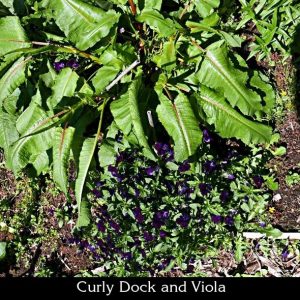 The interesting thing I’m learning this year is that, even when life gets crazy-busy, timing is everything. As my garden went largely neglected, winter broccoli and kale began to flower and started to produce seed. And the dock (in the buckwheat family but considered a weed) is everywhere, sending its tap roots deep into the soil. My temptation is to rush out there and start ripping out the old and planting the new. It’s spring, after all; it’s time for my garden to look organized and productive!
The interesting thing I’m learning this year is that, even when life gets crazy-busy, timing is everything. As my garden went largely neglected, winter broccoli and kale began to flower and started to produce seed. And the dock (in the buckwheat family but considered a weed) is everywhere, sending its tap roots deep into the soil. My temptation is to rush out there and start ripping out the old and planting the new. It’s spring, after all; it’s time for my garden to look organized and productive!
But while the garden looks a mess, something spectacular is going on. Flowers on the broccoli and kale are attracting hordes of bees to the garden. Although my spring plants are not yet in the ground, these late winter bloomers are creating a healthy home for pollinators and other critters essential for the health and vitality of the garden that is yet to emerge. Not only this, but because I’m letting it go to seed, I can save the seed from these heirloom and organic wonders for planting next year.
And that dock? While I pull or cut it back before it sets seed (it spreads like, well, a weed, but if you’re willing to risk that, I’m told the grain can be used as a coffee substitute), the young leaves are tasty and those annoying tap roots actually draw to the surface and make available nutrients trapped deep underground. That’s right, even these tenacious trespassers can be a profound asset.
[themify_box style=”light-green, rounded, shadow” ]Similar to sorrel, beet greens, chard and rhubarb, dock contains oxalic acid (rhubarb leaves contain so much that they are toxic!). This substance makes docks taste sour, kind of lemony. Oxalic acid can be potentially harmful if taken in large quantity. Cooking decreases the amount of oxalic acid. Plants for a Future notes: “People with a tendency to rheumatism, arthritis, gout, kidney stones or hyperacidity should take especial caution if including this plant in their diet since it can aggravate their condition. Avoid during pregnancy & breast feeding.”[/themify_box]
In my post last week, See the Wonder, I explored our need to go deep below the surface symptoms in our communities to discover the people, the imago dei, behind them. So much damage can be caused by focusing on symptoms and issues ahead of the people behind them. In a similar manner, in our eagerness to get busy and “fix things”, we might not only hurt the individuals behind them, we might also destroy community networks that help an area thrive, or at least survive, when times get tough.
Like the dock in my garden, community networks often run deep, wide, and lie largely unseen. Without taking time to listen, watch, and interact, we can easily miss how these deep networks actually provide nutrients that can make the neighborhood healthy. In our rush to rip out the “weeds” we can easily destroy important networks for feeding the community in the future. Learning to identify and understand not just individual issues in the neighborhood, but also the essential networks that lie underneath, can be one of the most important things that we do.
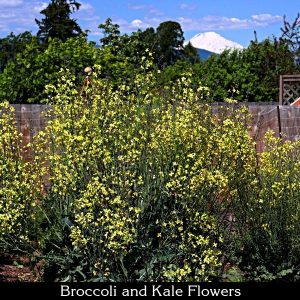 While I don’t want the dock to go to seed because it creates a mess in the garden, the broccoli and kale are a whole different story. These plants, have reached maturity. The natural thing to do is to admit that there’s no more produce to be extracted from these plants so it’s time to send them to the compost heap.
While I don’t want the dock to go to seed because it creates a mess in the garden, the broccoli and kale are a whole different story. These plants, have reached maturity. The natural thing to do is to admit that there’s no more produce to be extracted from these plants so it’s time to send them to the compost heap.
This is often our knee-jerk reaction to out-dated and older programs and institutions in our communities. There are certainly times when sending them to the compost heap is the right move. But sometimes these dying programs and institutions have one more thing to offer – seeds for a future endeavor.
Unlike my heirloom and organic seed, which I want to produce plants identical to their “parent”, the seeds we’re looking for from past-the-due-date programs and organizations are those that bring with them best practices, connections, and insights that assist in bringing forth new fruit for changing times. When we yank them out too quickly we risk losing hard-earned lessons of the past.
The Lesson
Delay is not always a bad thing. Sometimes, like with my garden, it forces us to slow down, to remember what it’s really all about, and to stay on track. Intentional delay can help us to listen more fully and learn more deeply of the places we inhabit, which makes us better community members and our actions more effective over the long run.
My challenge for the week: Find a place where you can sit and listen, watch, and wonder.
-
How might God be present even in programs and institutions you thought were long past their expiration date?
-
What “seeds” might be present within those programs and institutions that might actually be beneficial moving into the future?
-
As you observe the interactions between people and the flow of local trade and communication, what networks do you see that you didn’t notice before?
-
What “nutrients” might be deep within your community and how are they currently being “drawn to the surface” and made available?
-
With all of this in mind, are there things you may have been too quick to discount or ignore as irrelevant that might actually be important for the future of your place?
By Nils Von Kalm
In Christian circles, we generally place primary emphasis on believing in Jesus. After all, Acts 16:31 tells us that whoever believes in the Lord Jesus will be saved.
But what are we saved for? And what if God believes in us as well as us believing in God?
I have seen an encouraging move in the Church in recent years. It is a move which sees the Gospel as so much more than a ticket to heaven when we die. I think the Church is finally starting to see that our ultimate destiny is not a place in the sky once our life on this earth is finished.
We are discovering the biblical story again, the story that our ultimate destiny is a renewed heaven and earth brought together by God where God dwells with us and we live in a physical world with physical bodies where God’s rule has finally won the day.
Until then, God has saved us to participate in preparing for this new world, preparing for God’s kingdom to come on earth as it is in heaven. That’s why works of justice and caring for creation go right to the heart of the Gospel. They are part of preparing for the kingdom. In other words, God has given us a job to do.
Discovering this biblical narrative some years ago finally opened my eyes to the meaning of a cryptic conversation that the resurrected Jesus had with Peter as they walked along the shore of the Sea of Galilee one morning.
Imagine what must have been going on inside Peter’s head. He would still have been reeling from the shame brought on by his vehement denial of his Lord just days earlier. His shame may even have been exacerbated by finding out that Jesus was now alive again.
On that fateful night before Jesus died, it is Peter, thinking only of himself, who pretends to the onlookers that he has never even seen Jesus before. It is of course when the rooster crows that Peter is confronted with the fact of failing his best friend. His bitter, painful remorse is then shown for all to see.
How would you have felt if you were Peter in that situation? You’ve just spent the best years of your life with the person your people have been waiting centuries for. He has chosen you to be one of his closest friends, he has stood up for you, affirmed you, and shown you a quality of life you never thought you deserved. But when he needed you, when the roles were somewhat reversed, you failed him. Can you imagine the shame of that? Can you imagine the bitter remorse?
For Peter though, and for all of us who have failed, it doesn’t end there. As is his character, Jesus gets alongside Peter and restores him. It all happens in a strange little passage at the end of John’s gospel.
Jesus is walking with Peter along the beach, and does something which seems quite odd. He asks Peter if he (Peter) loves him. Peter responds, saying “you know I love you.” But then, Jesus asks Peter the same question again, and then again! Three times!
What is going on here? Is Jesus so emotionally insecure that he needs the affirmation of his best mate three times before he will believe it? Far from it. It is Jesus who is affirming Peter, not the other way around. The three questions Jesus asks correspond to Peter’s three denials just a few nights before. Jesus is restoring Peter. He knows Peter’s heart; he knows that despite Peter’s failures, the outspoken disciple still loves Jesus beyond measure.
Jesus trusted Peter, the one who had failed him so badly, to be a pillar of the new Christian movement. Rather than getting him to step down because of his failures, Jesus told him to step up. This was affirmation, forgiveness and trust of the highest order. Peter had failed the Son of God so spectacularly, and what was Jesus’ response? Jesus believed in Peter, and gave him a job to do.
Anyone is welcome to serve at the feet of Jesus. God knows I have made many mistakes over the years, but God still chooses to use me. That is not big-noting myself, it is actually cause for humility, that the Source of all love and hope would use even me to work to bring that love and hope into this broken world.
Your history doesn’t have to be your destiny. Jesus restored Peter because he believed in Peter and wanted him to enjoy the privilege of playing a part in working for God’s kingdom.
Easter is not about salvation on its own. It is about restoration, transformation, and renewal. Through the life, death and resurrection of Jesus, we are restored, renewed and transformed, so that we can live out our destiny of restoring, renewing and transforming the world. We are the most fortunate people in the world, and it is with this privilege that we continue to fight for a world in which the love of God rules the day.
By Lisa McMinn
“Here I am! I stand at the door and knock. If anyone hears my voice and opens the door, I will come in and eat with him and he with me.” I memorized Revelation 3:20 in third grade, probably for Pioneer Girls. I heard sermons about opening my heart’s door to Jesus and liked the paintings of Jesus standing in warm yellow lamplight, knocking on a wooden door. What I don’t remember is hearing much about the eating part.
While references to eating are sprinkled throughout the Bible like a solid dusting of powdered sugar over French toast, until recently I mostly missed them, and I doubt I’m the only one. My food has pretty much always been guaranteed, so food and eating references felt inconsequential for the most part; the main point was to get our souls in order. However, for those for whom food is not guaranteed, identifying with stories of harvests, feasts, sacrifices, drought, famine, and farming is more natural. Only recently have I come to see the deeply spiritual nature of food—physical, fragrant, savory food.
As it turns out, food is both a pleasure and our salvation. We need to eat to live, and either a plant or an animal needs to die so that we can go on living. But Jesus also sustains life now, not just because of what he did in the past but because he holds all creation together (Col. 1:17). Jesus comes to us, knocks on the door, and sits down for a meal—maybe spinach salad with hazelnuts, cranberries, and feta; butternut squash ravioli with pine nuts and sage browned butter; and apple strudel for dessert. Feeding his disciples was one of the first things Jesus did after the resurrection—a breakfast of roasted fish served on the seashore by the risen Rabbi.
Eating offers a pleasurable way of communing. Unlike our family cat, Pollifax, whose diet consists of raw field mice and dry cat food eaten alone (generally with efficient gusto), eating isn’t simply a functional pleasure. We are created with potential to enter each other’s lives as we break bread together, to give and receive and enjoy pleasure as we partake in food that keeps us alive. The mystery of communion is that we eat in order to live more fully. We eat with others, with Jesus in our midst, that we might live better, love better, and be grateful.
When Protestants speak of communion, they typically mean a ceremony where bread and wine (or grape juice) are eaten and sipped to remember Christ, who sacrificed all for us. Various traditions practice communion in different ways and emphasize different elements and purposes. My own religious tribe, the Quakers, observes the sacrament of communion during quiet communal worship every Sunday rather than with elements. We work to see all moments of life as sacramental—every meal as sacred time, an encounter with God. As an observant Quaker I fail at this; every meal does not, in fact, feel like communion.
It comforts me to remember that the possibility of sharing communion with God at each meal takes place more through God’s initiation than through my ability to make it happen. Therefore I embrace the practice, however feebly, because I want to be engulfed daily in God’s love and presence, mindful of my commitments and belongingness, my shortcomings and need for reconciliation. When I pay attention, I more easily remember that life is sustained by God’s daily grace and the sacrifices that bring me food.
Today’s post is excerpted from Lisa McMinn’s book To the Table: A Spirituality of Food, Farming, and Community. pp. 21-23, Brazos Press, a division of Baker Publishing Group (Used with permission)
My husband Tom and I have just returned from one of our quarterly prayer retreats. For me this has been a much needed time of renewal and refreshment.
These last few months have not been a good season of listening for me. Much of what I have heard is distracting noise. And much of what I have seen is more pressure and work.This seeking after God is simple and ordinary, yet profound and powerful. God’s holy song is present everywhere but I have not heard it and I will not hear it unless I pause, take a deep breath, look and listen.
What is Your Response
Find a quiet place without distractions where you can sit still for a few minutes and focus on the presence of God. Take a few deep breaths in and out. Sit in the stillness of the moment and reflect back over the last few days.
What do you hear? What aspects of your days cries out to you with the voice of God? Where have you allowed the divine whispers to be drowned out by distractions?
What do you see? Does the world around glow with the divine image or is it darkened by the clutter of a busy life? Is there anything that you sense God is asking you to change.
A couple of days ago someone sent me this fascinating article about how going through a doorway wipes out memory. We move from one room to another and forget what we are looking for. It is called an event boundary. And as I return from retreat I am afraid that I have passed through a doorway that will erase my memory of the changes I intended to make in my life. Unfortunately the only solution the article had was to name what we were looking for as we move though the doorway in the hope that it will stick.
I feel I need to name my resolutions too, not just as I pass through this doorway but repeatedly. A little like the Israelites who were instructed to write the command to love God on the doorposts of their houses (Deut 6:9), so they would not forget it.
What helps me to do this is my weekly journalling practice. For years I have faithfully responded to the questions: What and I grateful for, What am I struggling with and What bears the fingerprints of God?
One of the new questions this season raises for me is: How faithful have I been to the disciplines to which I committed myself, not just in my spiritual life but in all of life? I realize that before I can take the question seriously, I need to be more intentional about the practices that will shape my life in this coming season.
I am reminded again of Pope Francis’ words
every single action of a Christian is to be a step closer and closer to God and to one’s neighbour.
The true purpose of life is the journey towards God and towards neighbours. When I am too busy, too distracted, too focused on tasks, I forget that. When I intentionally open my eyes and unstop my ears so that I truly look and listen and allow each step to take me closer to God and neighbour, the revelation is awe inspiring.
What is your response?
What doorways have you passed through that made you forget God’s intention for you? What practices help you to remember God’s commands and the purpose of your life journey? Is there a response that God is asking of you at this time?
Watch the video below and end with a time of prayer for a renewed commitment to the ways of God.
As an Amazon Associate, I receive a small amount for purchases made through appropriate links.
Thank you for supporting Godspace in this way.
When referencing or quoting Godspace Light, please be sure to include the Author (Christine Sine unless otherwise noted), the Title of the article or resource, the Source link where appropriate, and ©Godspacelight.com. Thank you!

